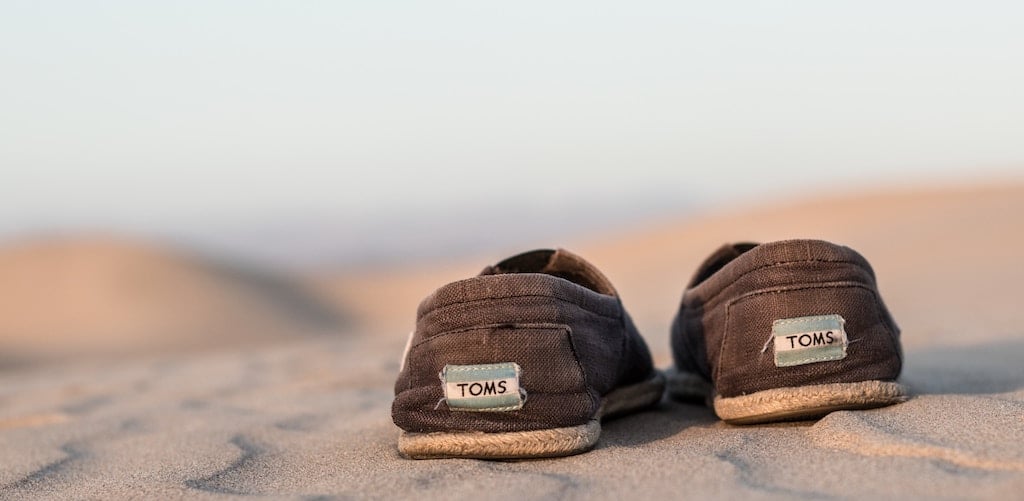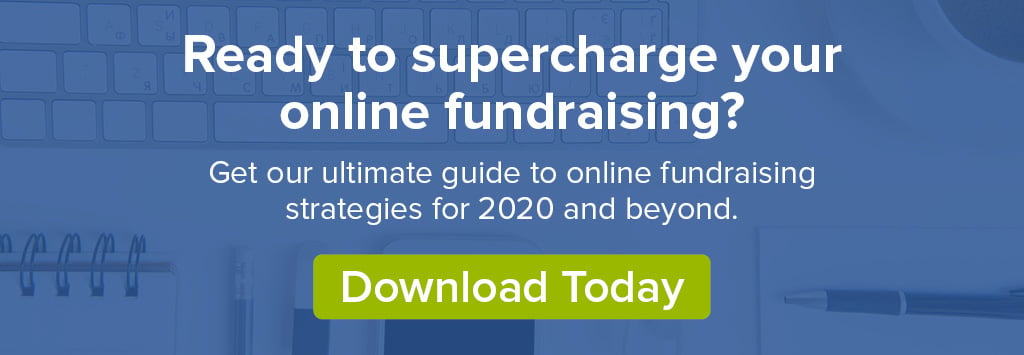
Certified B Corporations ("B Corps") are socially responsible, for-profit businesses that uphold the highest ethical and environmental standards, public transparency, and legal accountability. It points to how the company benefits their workers, communities, and the environment.
Companies that receive “B Corp” certification seek to balance profit and purpose. Each member signs the B Corp Declaration of Interdependence and is genuinely committed to ensuring the highest social responsibility standards for their company. All of us can learn something about ethics and social responsibility from each of these companies!
There is a difference between Certified B Corp companies and “benefit corporations.” B Corp certification gives a company a “stamp of approval” for their social responsibility efforts. A benefit corporation is a legal corporate structure within a state.
While there is no direct financial advantages to earning a B Corp certification, there are countless benefits. Studies show that 92% of consumers have a more positive view of socially responsible companies that support social and environmental causes. 66% of consumers say they would pay a little more to patronize businesses that are socially responsible.
We at Soapbox Engage are a proud certified B Corp company. We take our membership in this community very seriously, and we are honored to participate in the movement to positively impact employees, communities, and the environment.
We want to highlight three fellow members of the B Corp community and one “non- B Corp” companies that are making a positive impact in the world. It is important to celebrate socially responsible companies, encourage their work, and inspire other organizations to incorporate social good in their mission.
Patagonia: Leading The Way In Environmental Social Responsibility for Businesses
From its foundation, Patagonia placed a high value on ethical and environmental sustainability. It began as a company that designed gear for alpine and rock climbing. Now it produces high-quality clothing and sporting equipment for everything from backyard BBQs to alpine skiing.
As a certified B Corp member, Patagonia sets a high bar for putting their social responsibility values into practice. Patagonia donates 1% of the total sales, or 10% of its profits, whichever is greater, to environmental groups.
Yvon Chouinard, founder of Patagonia, holds his company to high ethical and environmental standards while encouraging other businesses to join the movement. One Percent for the Planet encourages businesses to give a percentage of their profits to environmental charities.
Lest you think these environmental and ethical values only exist at the top, Patagonia encourages their employees to get involved. Through Patagonia’s environmental internship program, each employee can take up to two months (with full pay and benefits) to volunteer with an environmental nonprofit of their choice. Patagonia sees this as a way to donate time, talent, and a portion of their profits to charity.
Patagonia also seeks to mobilize their customers to become socially responsible. The Patagonia Common Threads Recycling Program encourages consumers to take responsibility for “the sustainable journey of the clothing products.” The Common Threads Pledge invites all customers to “buy only what they need (and will last).” They encourage people to repair clothes as much as possible and find new homes for Patagonia gear they no longer need.
There comes a time in an article of clothing’s life when it’s time to retire. All Patagonia stores have recycling bins where customers can return any Patagonia clothing with the Common Threads label on it. Patagonia then refurbishes the item and turns it into a new product to sell or discards it appropriately (some items are just too-well-loved to have another life). This program dramatically reduces waste that ends up in landfills.
Patagonia sets a high bar for thinking holistically about ways to bring about change and fight for a cleaner, healthier planet. Their values for social responsibility truly impact their daily operations and decisions.
Tegu: Social Responsibility That Transforms Communities
Tegu creates beautiful, magnetic blocks that inspire creativity as children build and play. There are no instruction manuals or electronics; just fun, colorful blocks that inspire unlimited creativity in kids of all ages.
In addition to manufacturing fun, educational magnetic blocks, Tegu seeks to “make the world better than when they found it.” They hold the highest standards for how they treat their employees and nature.
Chris and Will Haughey, the founders of Tegu, intentionally located their Tegu factory in Honduras with the goal of transforming whole communities. They pay their employees fair, livable wages, and prioritize long-term career growth over task-based jobs for each employee they hire. Tegu also works with local Honduran cooperatives that individually harvest each mature tree to make sure all the wood is responsibly and sustainably sourced.
Tegu puts its value for transforming the whole community into practice at every level. They sustainably source raw materials and structure their business to serve their employees. Purchasing Tegu blocks will put a smile on your child’s face, and it will support a for-profit business that is making a difference in the world.
New Belgium: Socially Responsible Business... and Brewing
Pour yourself another Fat Tire because supporting New Belgium Brewing is a vote for social equity and combating climate change! Since its birth in 1991, the founders of New Belgium wanted their company to be a force for good. They are doing just that.
In 2013, CEO and co-founder Kim Jordan “sold” the company to her employees--all of them. New Belgium employees own the company through a stock-ownership plan. Jordan wants to use the business to share equity, collaborate with other companies, and use the profits to promote environmental education.
The brewery has an open-book management practice that teaches its employees how to read and understand the financial performance of their business. From the forklift driver to the CEO, New Belgium values teaching people how a company runs and how to take ownership of their business.
New Belgium receives high marks for environmental sustainability. In 2018 New Belgium announced their efforts to combat climate change by making their business as green and sustainable as possible. New Belgium also strives to work with socially responsible vendors who hold similar environmental and ethical standards.
They produce 18% of their own electricity with solar panels on-site at their Fort Collins, CO brewery. They also capture and repurpose heat created in the brewing process. And, they don’t pass the costs of these efforts on to their customers. They fund the projects by taxing the business on its purchased energy usage. New Belgium is also actively working to reduce its reliance on fossil fuels.
The brewery also has a long track record of generosity toward bicycle and eco-focused organizations.
This B Corp certified brewer makes excellent beer and is doing great work to pursue ethical and environmental justice! It takes deep commitment for someone to change the structure of their business to become socially responsible. Kim Jordan did just that.
Bombas: Raising Up Socially Responsible Companies, One Sock At A Time
Bombas is a buy-one, give-one company B Corp company that wants to help other companies join the social giving movement! It all started with a need. Socks are the most requested item at homeless shelters. Bombas founders, Randy Goldberg, and David Heath stumbled across this need and decided to launch a sock company that follows the one-for-one model that Toms Shoes pioneered.
Goldberg and Heath designed premium, high-tech socks that quickly went viral--or whatever the sock version of “going viral” is. In just four years, Bombas sold and donated more than 10 million pairs of socks!
Bombas sends socks to 750 organizations around the United States. The owners often find time to drop off donations in person. Why? Because they deeply value personal interactions with the homeless community. Heath and Goldberg want their employees to know the names and faces of the people they are trying to help.
Knowing their audience also helps Bombas fine-tune their product. In response to feedback received from the homeless community, Bombas decided to create a “super-sock” to meet the needs of the homeless community better.
Bombas retail socks don’t have a seam at the toe. Their donation socks have reinforced stitching for more durability. They also treat the donation socks with anti-microbial technology to combat fungus and last longer between washes. The donation socks also come in black to hide and resist stains. They are continually taking feedback to improve their “super-sock.”
Bombas is now inviting other organizations to join them for in-person giving experiences! Many companies want to increase their social responsibility initiatives. Companies often have the time and money set aside for employees to participate in charitable causes, but they don’t know the next steps or have the right relationships to take those steps.
Relational capital is significant in the “social good” efforts. Bombas wants to leverage the relationships they built with homeless shelters and other nonprofits to help other companies mobilize their employees to get involved. They hosted a “60K Day” to bring members from 60 of New York’s most popular companies to visit shelters and distribute 60,000 pairs of socks to 60 shelters in one night.
Bombas wants to start a bigger conversation about homelessness and help companies mobilize and get involved in social justice issues in their communities. Currently, all of Bombas’s programs are in New York City. They plan to expand to more cities around the country and help hundreds of companies become more socially responsible!
Whatever service or product your organization offers, there is a creative way for you to fight for social and environmental equity. Being a socially responsible business might not get you more customers or help you sell more of your product, but it will help you create a better work environment, make a positive impact in your community, and contribute to caring for our planet.
Are you ready to become a more socially responsible business? Here are three tools to get you started!
- 4 Skills Every Development Professional Must Have: Becoming a more socially responsible business or organization requires excellent communication skills to help your customers and supporters understand the vision. Here are some tips to fine-tune your written and verbal communication skills.
- Customize Your Nonprofit’s Online Petition With Your Own Questions: An online petition can be an effective tool for triggering change! Invite your customers or donors to become more involved in your social responsibility efforts with custom petitions!
- Best Salesforce Apps for Nonprofits: 7 Essential Tools: Socially responsible organizations value financial responsibility. Salesforce helps nonprofits streamline their business and save money! Learn more about these Salesforce apps that will help you save time and be more fiscally responsible.
